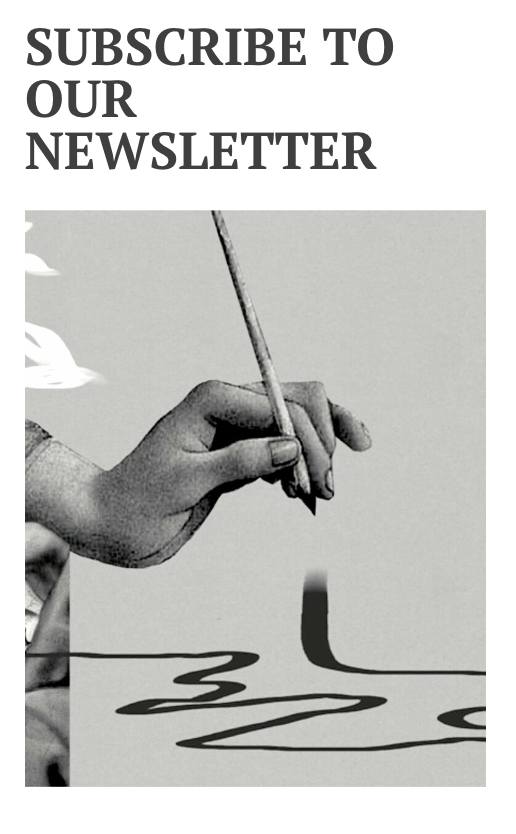
Listen to the article
Azerbaijani President Ilham Aliyev’s recent comments at the Second Global Media Forum in Shushi entitled “Unmasking False Narratives: Confronting Disinformation” underscore his defiance and confidence in his actions regarding the Nagorno-Karabakh conflict. Despite international sanctions and criticism, Aliyev proudly noted: “We restored the internationally recognized territory of Azerbaijan, which was under occupation, by force and political means. And we have been under sanctions…it is very disappointing.” He went on to say that they were told “no business as usual” by the international community following their attacks on Armenia and the ethnic cleansing of the entire population of Nagorno-Karabakh. “We all remember that, and then what happened? Business as usual is back, and we didn’t do anything to satisfy those exaggerated and unrealistic demands,” Aliyev said.
The resumption of “business as usual” with Azerbaijan, reveals a troubling trend. As long as Aliyev does not face consequences for his actions, it sets a precedent for other repressive regimes around the world.
In the more than three-hour Q&A, Aliyev made numerous statements specifically targeting Armenia. He referred to the Republic of Armenia as “Western Azerbaijan,” demanded the dissolution of the OSCE Minsk Group, harshly criticized France, and questioned the authority and role of the United States in the South Caucasus. Aliyev emphasized that Washington’s “no business as usual” stance can easily be reversed or redirected, even if Azerbaijan continues its current behavior.
During the hearing on “The Future of Nagorno-Karabakh” held by the U.S. House Foreign Affairs Committee’s Subcommittee on Europe in November 2023, Assistant Secretary of State James O’Brien stated that until Azerbaijan demonstrates it is negotiating in good faith, “there’s no chance of business as usual” between Washington and Baku. In response to a question about the prospects for reaching a long-elusive peace deal between Armenia and Azerbaijan, O’Brien replied, “The question is Aliyev.”
Now, nine months later, Aliyev cites this statement as evidence of U.S. inconsistency and a shift in policy, while also emphasizing his unwavering and firm political stance. The irony is that, over the past nine months, Aliyev has not demonstrated good faith in the negotiations; quite the opposite. Azerbaijan’s entire propaganda machine is currently working against peace, making new territorial claims on Armenia and opposing Western involvement in the region. So, the question is: what will be the consequences when the U.S. goes back to “business as usual” with Azerbaijan?
Before trying to answer this question, let’s take a look at some of the propaganda and discourse of the Azerbaijani press, which reflects Baku’s state policy toward the West and the U.S. specifically. On July 28, during a leading program on Azerbaijan’s state channel AZ TV, which sets the tone for the week and delivers key messages to the public, it was emphasized that the U.S. and the West are not only hindering peace efforts in the South Caucasus but also fueling new conflicts and tensions. The host specifically addressed the meeting between the foreign ministers of Armenia and Azerbaijan in Washington, organized by Secretary Blinken, questioning whether the White House is more concerned with peace or with being sidelined from the process. He remarked, “What worries the White House: peace or the possibility of being excluded from the process? Thus, we see that the U.S. wants to prevent direct dialogue…”
The program then shifts to discussing Russia, citing Russian statements and emphasizing that the West’s actions are dangerous for regional stability. “The West is not interested in peace and stability in the South Caucasus. As a result, enabling war in the region aligns with the interests of the collective West,” states another state-sponsored media channel, Baku.tv. The program suggests that the EU, the U.S., and France are preventing peace in the region. These anti-West and pro-Russia messages are prevalent in the mostly state-controlled Azerbaijani press which implements directives from the top.
The synchronization of Russia’s and Azerbaijan’s state propaganda messages is evident: both demonize the West and portray U.S. involvement in the region as a trigger for war and tension. While commenting on the Eagle Partner 2024 exercise from July 15 to 24, which involved Armenian peacekeepers, U.S. Army Europe and Africa, and the Kansas National Guard, Russian MFA spokesperson Maria Zakharova said: “The West’s main goal in the region is to create a foothold for its own geopolitical projects. To do this, they need to disrupt the peaceful trends that have already gained momentum there and once again embroil the countries of the region. They need to prevent the solidification of political intentions declared by both Baku and Yerevan and supported by regional countries. All this has a certain orientation—against Russia, against Iran, and even against Turkey.”
Similar rhetoric is echoed in Azerbaijan. An article on the state-linked Azerbaijani media outlet APA.az uses the exact same wording: “The next military exercise called Eagle Partner 2024 with the United States, ignoring the sensitivity and geopolitical interests of its southern neighbor Iran and Russia, which has been its main military-political ally for many years, shows that Armenia is at the center of very dangerous geopolitical games.”
After the Eagle Partner joint exercises, the Azerbaijani Ministry of Defense issued a threatening statement: “The military exercises conducted by the United States in Armenia, the provision of lethal weapons to Armenia by France, and the initial phase of military aid amounting to 10 million euros provided to Armenia by the European Union under the guise of the European Peace Facility encourage the occupying state—Armenia—to carry out such provocations and indicate its preparation for another war against Azerbaijan.” They also warned that if Armenia and its supporters do not refrain from creating a new conflict zone in the South Caucasus, “the Armed Forces of the Republic of Azerbaijan will take necessary response measures using all means at their disposal for the purposes of self-defense.”
Thus, at the official level, Azerbaijan is holding the U.S. and Western partners accountable for a potential escalation in the South Caucasus. It is clear that Yerevan lacks both the capacity and the interest to escalate the situation. Meanwhile, Baku continues to demonstrate a lack of genuine desire for peace and stability. The fact that Azerbaijan has conducted approximately 60 joint and individual military exercises and training sessions since the beginning of this year, coupled with an increased 2024 military budget of $3.7 billion, and the use of state funds to disseminate the false and dangerous notion that the Armenian state is “Western Azerbaijan,” suggests that Aliyev has no intention of pursuing peace. Instead, he seems to be laying the groundwork to blame a potential escalation and tension on the United States.
A noteworthy aspect of this anti-Western policy is that it followed the visit of James O’Brien to Baku, where he met with Aliyev on June 28. During this trip, O’Brien not only signaled that “business as usual” is back but also emphasized the importance of cooperation between Azerbaijan and the United States in various areas, including the further development of strategic relations. O’Brien highlighted “Azerbaijan’s pivotal role in shaping regional politics and establishing peace.” It was a notably cordial visit for the head of Azerbaijan’s authoritarian regime, clearly indicating that for the United States, aggression in Artsakh, the ethnic cleansing and forced deportation of Nagorno-Karabakh Armenians is considered a closed chapter, and now Aliyev is seen as an “establisher of peace”. This message, unfortunately, suggests that the use of force is considered acceptable. If it’s normal for Aliyev, why should it be any different for his friend and ally, Putin?
Presumably, Aliyev appreciated the generous gesture from Washington. Five days later at the Astana Summit, he signed a comprehensive “strategic partnership” declaration with China’s President Xi Jinping. One main point in the declaration stated that “Azerbaijan firmly supports the ‘One China’ principle, recognizes the existence of only one China in the world, that the government of the People’s Republic of China is the sole legal government representing the entirety of China, that Taiwan is an inalienable part of Chinese territory, firmly opposes ‘Taiwanese independence’ in any form, supports the peaceful development of relations across the Taiwan Strait, and the efforts of the Chinese government towards the reunification of China.” Another crucial point asserted that “the Chinese side expresses its readiness to actively participate in the construction and operation of the Trans-Caspian International Transport Corridor (Middle Corridor), to work more closely with Azerbaijan and other countries along the route to jointly promote the uninterrupted operation and accelerated development of freight trains along the southern corridor in the China-Europe and reverse direction, create favorable conditions for deepening regional practical cooperation, and jointly ensure the security and stability of production-supply chains.” Azerbaijan also expressed its desire to join BRICS, which was welcomed by China.
It’s noteworthy that, apart from a comprehensive declaration, Azerbaijan and China also closely cooperate in the military sphere. On June 14, a Chinese military delegation led by the Deputy Chief of Office for International Military Cooperation of the Chinese People’s Liberation Army, Major General Yao Qin, visited Azerbaijan and met with Azerbaijan’s Minister of Defense Zakir Hasanov. The meeting included extensive discussions on issues of mutual interest between the two countries in military, defense cooperation and military educational fields. According to the press release, “Major General Yao Qin expressed gratitude for the warm welcome and highlighted the importance of such regular meetings to exchange experience between the armies of the two countries, as well as to further develop relations…” Azerbaijani state-linked media sources presented the meeting as an important step toward expanding military cooperation. “This includes training in Chinese military academies and participation in joint exercises, which play a key role in improving the professional training and operational compatibility of Azerbaijani military personnel. In turn, this contributes to the strengthening of security and stability in the South Caucasus region,” one publication mentioned. This is just another example of Aliyev’s recent geopolitical reorientation.
Notably, Aliyev also met with Putin in Astana to discuss, among other things, the North-South Transport Corridor, which Russia’s president considers a “top priority”.
While Aliyev’s geopolitical choices are very clear, Washington continues to turn a blind eye, acting as if nothing is unfolding in the South Caucasus and that a “peace treaty” is “within reach”. The reality is quite different: anti-West propaganda, synchronized rhetoric and messages from both Aliyev and Putin, and the development of relations and strategic cooperation with China are all pieces of the puzzle. Azerbaijan is quite direct in rejecting a comprehensive peace treaty. All the preconditions, such as the demand for changes to the Armenian constitution or the request to dissolve the OSCE Minsk Group, are merely part of the process and not aimed at achieving a genuine resolution.
Each of these demands warrants analysis, but it is obvious that when Aliyev refers to the Republic of Armenia as “Western Azerbaijan” and claims that “present-day Armenia is our land,” he is not steering the region toward peace. If Armenia were to make changes to its constitution, it would mean that Aliyev gets his demands met unilaterally, leaving little incentive for him to stop escalating his claims. As for the demand to dissolve the OSCE Minsk Group, it is clear that the objective is to force international actors to accept realities created through force, war and ethnic cleansing. This raises a logical question: if such demands are accepted, why should any other aggressive leader in the world behave differently?
By allowing Aliyev’s unilateral demands to go unchallenged and ignoring the recent forced displacement in Nagorno-Karabakh, Armenia’s Western partners are not only missing the opportunity for peace but are actively undermining it. They fail to grasp the mindset of dictators, overlooking their deep-seated fears and vulnerabilities. Aliyev perceives that his actions carry no real consequences—only empty statements, recognition of issues without action, and no significant repercussions for aggression and ethnic cleansing.
The consequences of returning to “business as usual” while Baku demonstrates that, as O’Brien said nine months ago, “the question is Aliyev,” is dangerous not only for the United States but also for the region and conflict zones worldwide. Washington is sending mixed signals. Its actions appear neither value-driven nor aligned with U.S. interests, enabling the dictator in Baku to mock them and flaunt his political strength. He demonstrates how easily he can push the U.S. back to “business as usual.” U.S. proposals to connect Central Asia to Europe via Armenia and Azerbaijan are clearly being rejected by Azerbaijan and its allies. Additionally, the growing anti-Western sentiment suggests that the West is being sidelined in the region, depicted as a “trigger for war.”
Furthermore, by leaving Aliyev’s behavior unchallenged, decision-makers in Washington are sending a clear message to leaders of similar regimes that the use of force is acceptable, the status quo can be altered by war and will be accepted internationally, and displacing people from their homes and homeland due to their ethnicity is permissible. This stance is disappointing for those in the region who view the United States as a promoter of democratic values, human rights, and peace. The inconsistency damages trust in U.S. policymakers and democracy as a whole, and particularly when an aggressive dictator can openly hold the U.S. accountable for his own actions without facing any consequences.
Also see
Azerbaijan’s and Russia’s Campaign of False Narratives Against the France-Armenia Partnership
The deepening France-Armenia partnership has spurred Azerbaijan’s disinformation campaign against France, escalating into a hybrid war. Sossi Tatikyan debunks these narratives, revealing their striking commonalities with Russian tactics.
Read moreHungary: Baku’s Friend in Brussels
Hungary recently blocked EU assistance to Armenia through the European Peace Facility, yet another move highlighting its strategic alignment with Azerbaijan, from supporting Baku's actions in Nagorno-Karabakh to blocking EU statements condemning them to extraditing a convicted murderer more than a decade earlier.
Read moreAzerbaijan-Israel Relations: Implications for Armenia
The deepening alliance between Azerbaijan and Israel carries significant implications for Armenia, notably Azerbaijan's considerable acquisition of advanced Israeli weaponry which it has extensively employed against Armenian forces in the past decade.
Read moreHow Azerbaijan Deceives and Harasses the International Community
Azerbaijan has been using military and diplomatic coercion to achieve its maximalist and expansionist objectives, employing wide-ranging tools of hybrid war while also deceiving and harassing international actors. Sossi Tatikyan explains.
Read moreHypocrisy and Mystification: Azerbaijan in the Non-Aligned Movement
The Non-Aligned Movement is a diplomatic platform where Azerbaijan, as a major oil-producing nation, tries to exert influence by supporting ex-colonies that are purportedly fighting colonialism. Garren Jansezian explains.
Read moreExamining the Context
Podcast
Examining the Context: America’s Defense Diplomacy, Understanding Washington’s Investment in Armenia’s Security Architecture
In this episode of “Examining the Context” podcast, Dr. Nerses Kopalyan explains the concept of defense diplomacy to understand the strategic framework guiding America’s increasing engagement with Armenia’s security landscape.
Read more







